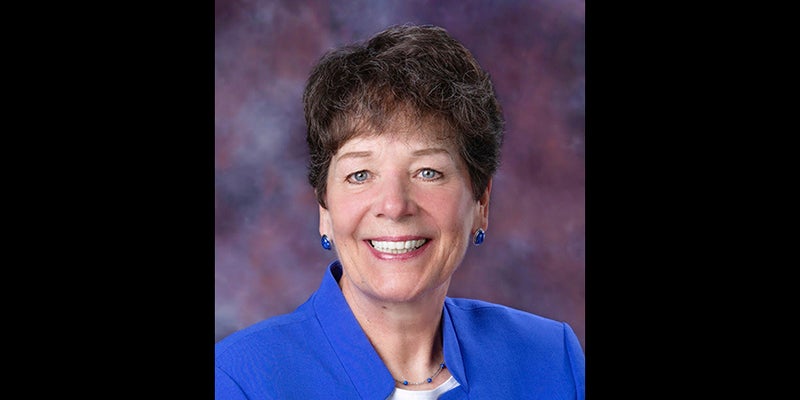Looking into our future
Published 3:09 pm Saturday, April 11, 2009
Editor’s Note: This is part 5 of 5 in a series examining the effects of the recession in the Austin community
Dale and Ann Odegaard have always been the type of people who roll up their sleeves to get things accomplished.
So when the Austin couple — members of the AARP through the Retired Educators Association of Minnesota — heard that health care was in danger of budget cuts, they decided to do something about it.
Self-proclaimed “citizen lobbyists,” Dale is a former English and speech teacher at Austin High School who also taught at the college level, and Ann retired in 2001 from teaching family and consumer sciences at AHS and Ellis Middle School. After retirement, the Odegaards became active in promoting health care for seniors, most recently on a trip to the capitol in St. Paul.
“Please don’t have the vulnerable bear the brunt of these cuts,” Dale said. “We want to maintain the health and long-term care for elderly citizens.”
Dale and Ann, serving as AARP advocates, met with state Rep. Jeanne Poppe (DFL-Austin) and state Sen. Dan Sparks (DFL-Austin) last week to discuss health care.
“Our main goal was to get to the Legislature to say, ‘Let’s look at this if there are cuts,’” Ann said.
The Odegaards are just two of many citizens lobbying this session for their causes, whether they be health care, education, veterans care, the environment or other issues. Cities fight to keep Local Government Aid; K-12 schools and colleges plead their cases; child care advocates beg for a break.
At the federal level, many of these causes will receive some relief thanks to the $787 billion stimulus bill signed into law in February.
“This budget, this moral document, invests in key priorities like health care, education and energy to get our economy growing again,” Congressman Tim Walz said in an Associated Press report. “The only way we’re going to get out of this mess is by growing our way out of it; we must move forward.”
Walz, like many legislators, is seeking ways to restart the economy. Many jobs lost will not be coming back. Some industries are no longer at the height of their success.
“I think you are going to see jobless claims a little stable,” Walz said Thursday. “I do think you are starting to see some construction jobs, a lot of cones out. There’s been some housing work that’s starting to go again. We can take bold steps to an economy that works for everyone.”
Walz said he has several priorities for tackling the economy, including getting a handle on health care costs, education and energy independence and related jobs. He boasts the visionary bioscience corridor in southern Minnesota as a jump-start on emerging alternative energy industries, providing, new, well-paying jobs.
He believes that Austin is better poised for the recession than other communities, citing the stability of Hormel Foods, the work at the Hormel Institute and the teacher fellowships in science at Austin High School.
“We’re envisioning the big arc, the big corridor stretching from Austin up to Minneapolis, and Austin is one of the anchors of that,” Walz said. “Austin has great leaders locally that understood this years ago.”
The Development Corporation of Austin has recently won grants for partnering with Riverland Community College to create a two-year bioscience degree and to organize the Town Meeting Initiative, an economic development effort that includes public input.
“I’m really optimistic,” said John Garry, executive director of the DCA. “I’m typically a very realistic person. Cautiously, we have reason to be optimistic.”
Austin City Administrator Jim Hurm agreed.
“Those are the types of things we should be doing now (with the economy),” he said. “I think we’re doing the right things at the right time.”
Hurm said business recruiters have praised Austin’s initiative in the Main Street Project.
“In the last few years we have down a tremendous job in improving our downtown,” he said. “We did pick ourselves up. We have done it — and faster — than just about any community in the country.
“You have to be enthusiastic about your community,” Hurm said.
Poppe said Friday that work on the bonding bill is the Legislature’s top priority. She echoes Walz’s sentiment that southern Minnesota needs to promote itself as an area ripe for bioscience industry.
“That is where the future lies,” she said, referring to the institute. “How do we wisely invest our state dollars to help spur economic growth in areas of science and technology?”
Poppe said she is very concerned about the state of the economy now, and does not anticipate job losses and housing to rebound until at least 2010.
“The February forecast showed the budget is going to be short 6.4 billion dollars,” the third-term legislator said. “We may see some improvement, hopefully by 2010. I think that the job loss is significant, and I think that is not likely to level off for awhile yet.
“We are doing well because of the fortunate things that we have,” she said of Austin. “It does matter what part of the state you are in.”
Poppe, who sits on the Higher Education and Workforce Development Finance and Policy Division, says she is fighting to keep college costs down. She believes too many middle-class families can no longer afford tuition.
“That’s something that is so astronomical.,” she said. “We’re leaving a generation of students behind because they cannot afford to go on to higher education. To me, that’s an investment for all of us, for our future and our economy.”
As more and more people converge on the capitol to advocate their causes, Poppe believes that although everyone should continue to be passionate about what is important to them, they need to really look at sacrifice.
“Shared sacrifice means look at yourself and what it means for you,” she said. “At a certain point, we have to look inward first.”
Poppe said balancing the budget this session is going to be disastrous if taxes are not raised.
“If the governor insists that will not happen, cuts will be deeper,” she said.
Although Walz remains optimistic, he said we “cannot let our guard down” now.
“We created an economy that was flawed,” he said. “We had a housing sector that was running a little rampant.
“I think there’s every reason to believe we are moving in the right direction,” Walz said.





